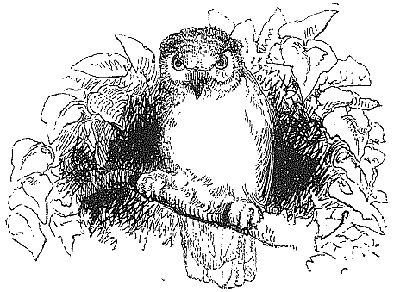
FIFTH CLASS—SCHOLASTIC.

FIFTH CLASS—SCHOLASTIC.
|
DOCTOR FAUSTUS was a good man, He whipt his scholars now and then ; When he whipp'd them he made them dance Out of Scotland into France, Out of France into Spain, And then he whipp'd them back again !
|
|
A DONKEY walks on four legs, And I walk on two ; The last donkey I saw Was very like you.
|
|
CROSS patch, Draw the latch, Sit by the fire and spin ; Take a cup, And drink it up, Then call your neighbours in.
|
|
WHEN I was a little boy my mammy kept me in, But now I am a great boy I'm fit to serve the king ; I can hand a musket, and I can smoke a pipe, And I can kiss a pretty girl at twelve o'clock at night.
|
|
CRY, baby, cry, Put your finger in your eye, And tell your mother it wasn't I.
|
|
|
|
MISTRESS MARY, quite contrary, How does your garden grow ? With cockle-shells, and silver bells, And muscles all a row.
|
/ p.47 /
|
A DILLER, a dollar, A ten o'clock scholar, What makes you come so soon ? You used to come at ten o'clock, But now you come at noon.
|
|
TELL tale, tit ! Your tongue shall be slit, And all the dogs in the town Shall have a little bit.
|
| [The joke of the following consists in saying it so quick that it cannot be told whether it is English or gibberish. For the version now printed, which is more complete than the one given by Chambers, I am indebted to Professor de Morgan, who has heard it in Dorsetshire. It is remarkable that the last two lines are quoted in MS. Sloan. 4, of the fifteenth century, as printed in the 'Reliq. Antiq.,' vol i, p.324.] |
|
In fir tar is, In oak none is. In mud eel is, In clay none is. Goat eat ivy, Mare eat oats.
|
/ p.48 /
|
|
|
MULTIPLICATION is vexation, Division is as bad ; The Rule of Three doth puzzle me, And Practice drives me mad.
|
| [The following memorial lines are by no means modern. They occur, with slight variations, in an old play, called 'The Returne from Parnassus,' 4to, Lond. 1606 ; and another version may be seen in Winter's 'Cambridge Almanac' for 1635. See the 'Rara Mathematica,' p.119.] |
|
THIRTY
days hath September, April, June, and November ; February has twenty-eight alone, All the rest have thirty-one, Excepting leap-year, that's the time When February's days are twenty-nine.
|